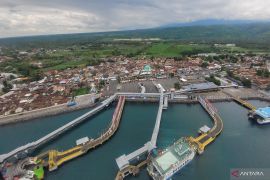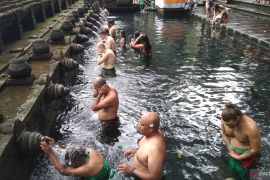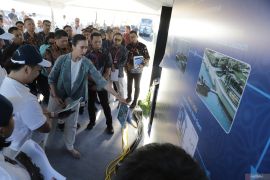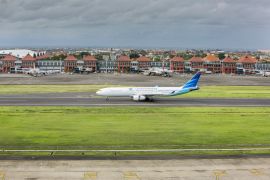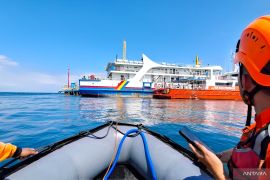"The survey shows the healthy coral reef coverage has increased compared to 12 years ago. In most diving spots, there are indications that Bali`s coral reefs are in a recovery phase. The survey has also led to he discovery of new species," CI Indonesia Executive Director Ketut Sarjana Putra said in a press statement here Sunday.
Among the newly discovered species were two in the Euphyllia coral family, two in dottyback fish , two in the cardinal fish, one in reef perch, one in the blenny and one in the goby families.
"A follow up survey is needed to confirm and determine the taxonomy of each species," he said.
According to the rapid evaluation survey, in line with the previous survey carried out by CI in cooperation with the Bali administration in Nusa Penida in 2008, there were 953 coral fish species and 397 coral reef species in the coastal waters of Bali.
Targeting 33 different sites the survey team identified 952 fish and found that nine were new, hitherto unknown species that included damsels, eels and blennies plus a new variety of euphyllia coral.
Although they discovered the new fish, they have not yet been named but are in the the genres Siphamia, Heteroconger, Apogon, Parapercis, Meiacanthus, Manonichthys, Grallenia and Pseudochromis
The survey, part of CI`s 20-year Rapid Assessment program - RAP)), was conducted at the request of the Bali administration and the marine affairs and fishery office, to maintain the health of coral reefs and to formulate recommendations on coral management in 25 regions designated as a marine conservation area network in Bali.
Mark Erdmann, senior scientific adviser of the CI Indonesia`s marine program, said he had never expected to discover a high biodiversity of habitats and coral reefs which were in the recovery phase from bleaching, destructive fishing activities, and sea urchins in 1990s.
"We conducted the survey in 33 locations around Bali, almost circling this island. And we are very much impressed by what we saw," Mark Erdmann said.
Although during the survey, researchers noticed that coral reefs were in the recovery process, and the ratio between live and dead corals was 7:1, they also noticed that certain coral fish had gone.
During the 350 diving hours, the survey team only saw three coral sharks and three napoleon fish. That was in contrast to the healthy coral system where big predators were usually seen, he said.
The survey team also spotted a lot of plastic waste and fishermen in the main zone of the West Bali National Park.
The CI Team recommended the establishment of priority regions for immediate conservation, and an integrated land-sea spacial system to prevent a conflict between marine tourism and destructive fishing practices.
They also recommended to the local authorities to prevent plastic wastes from being disposed of in the sea.
(f001/A/HAJM)
(ANTARA)
Editor: Ella Syafputri
Copyright © ANTARA 2011




